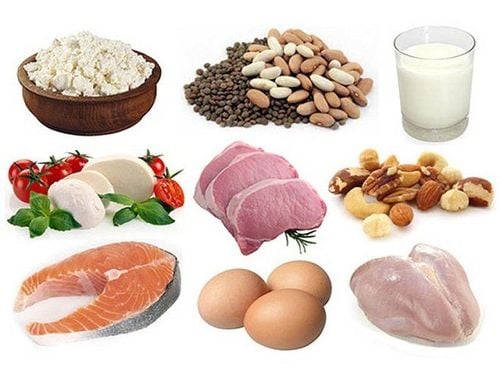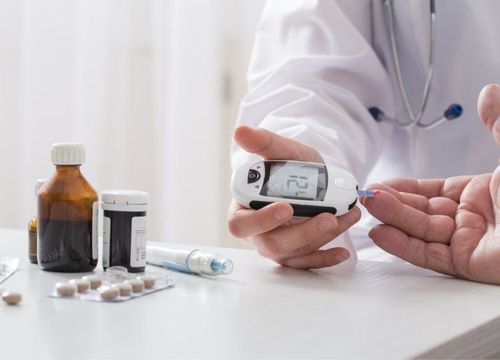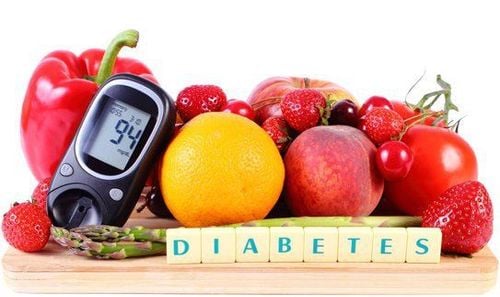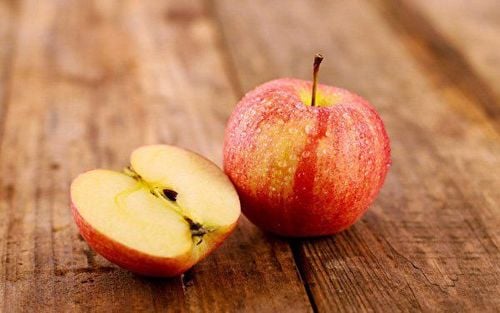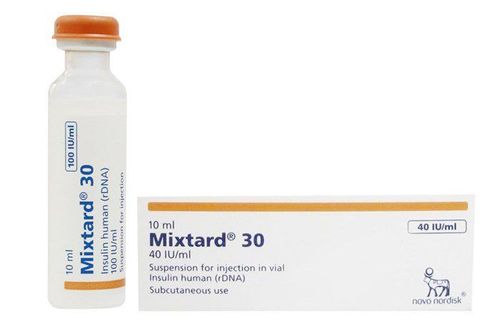Apples are a nutritious fruit. However, the apple ingredient contains many carbs, which affect blood glucose. This article will explain how apples affect blood glucose and how to combine them into your diet if you have diabetes.
1. Nutritional value of apples
Apples are the popular fruits. The apple nutritional composition is rich in fiber, vitamin C and good antioxidants. A medium-size apple contains 95 calories, 25 grams of carbs and 14% of vitamin C daily.
Most of the nutrients are found in the apple skin. They also help you feel full without consuming many calories. You can feel full after eating just one apple.
2. The relationship between apples and diabetes
If you have diabetes, controlling the carbohydrate intake is important. Because of the three macronutrients - carbs, fat and protein - in there, carbs have the biggest impact on your blood glucose.
A medium-sized apple contains 25 grams of carbs, 4.4 grams of fiber. Fiber slows down the absorption of carbs, which helps prevent spikes in your blood glucose. Studies show that fiber may protect against type 2 diabetes and many types of fiber can help control blood glucose.
In summary, apples which contain high carbs can raise blood glucose. However, the fiber in apples helps stabilize blood glucose, and has many other health benefits.

3. Eating apple does not significantly affect blood glucose level
Apples contain sugar, but most of the sugar in apples is fructose. Fructose, which is found in fruits, has a very small effect on blood glucose. Additionally, apples contain fiber - which slows down the digestion and absorption of sugar. This means that the sugar enters the bloodstream gradually and does not cause a sudden spike in blood glucose. Furthermore, polyphenols, which are plant compounds found in apples, also slow the digestion of carbs and reduce blood glucose. The glycemic index (GI) and glycemic load (GL) are useful tools for measuring how foods affect blood glucose. Apples score relatively low on both the GI and GL scales, meaning they have a very small effect on raising blood glucose. One study in 12 obese women found that blood glucose were 50% lower after eating a low-GL meal, compared to a high-GL meal.
Therefore, apples have very little impact on blood glucose and are unlikely to cause blood glucose spikes, even in diabetics.
4. Apples may reduce insulin resistance
There are two types of diabetes – type 1 and type 2. If you have type 1 diabetes, your pancreas doesn’t produce enough insulin – the hormone that transports sugar from your blood to your body’s cells. If you have type 2 diabetes, your body produces insulin but your body’s cells resist it. This is called insulin resistance. Regularly eating apples can reduce insulin resistance, leading to lower blood glucose. This is because the polyphenols in apples, found mainly in the skin, stimulate the pancreas to release insulin and help cells absorb sugar.
In short, apples contain phytochemicals that can improve insulin sensitivity and reduce insulin resistance.
5. Antioxidants found in apples can reduce the risk of diabetes

Several studies found that eating apples can help reduce the risk of diabetes, with women who ate apples every day having a 28% lower risk of developing type 2 diabetes than women who did not eat any apples. The antioxidants found in apples can play an important role in reducing the risk of diabetes. Antioxidants are substances that prevent some harmful chemical reactions in the body. They have many health benefits, including protecting your body from chronic disease.
Significant amounts of the following antioxidants are found in apples:
- Quercetin: Slows down the digestion of carbs which helps prevent blood glucose spike.
- Chlorogenic acid: Helps your body use glucose more efficiently.
- Phlorizin: Slows down the absorption of sugar and lowers blood sugar.
6. How should diabetics eat apples properly?
- Eat the entire apple: To get all the benefits of an apple, let eat the entire apple.
- Avoid apple juice: Juice doesn't have the same benefits as eating the entire apple, because it's higher in sugar and deficient fiber.
- Limit serving size: Just eat one apple a day, if eating too much can spike blood glucose.
- Spread out fruit intake: Combining a variety of fruits in appropriate amounts each day can help keep your blood sugar stable.
Please dial HOTLINE for more information or register for an appointment HERE. Download MyVinmec app to make appointments faster and to manage your bookings easily.
Reference source: healthline.com
To arrange an appointment, please call HOTLINE or make your reservation directly HERE. You may also download the MyVinmec app to schedule appointments faster and manage your reservations more conveniently.
